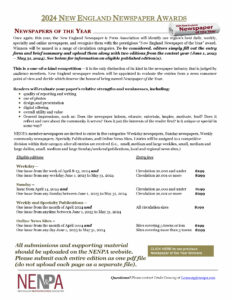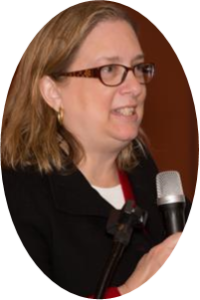
About the New England Journalism Educator of the Year Award
NENPA presents the New England Journalism Educator of the Year award on behalf of the Journalism Education Foundation of New England to recognize a professor at a university or college in the six-state region who is doing outstanding work to prepare journalists to lead our newspaper organizations into the future.
Each college in New England is entitled to submit one nomination for the Journalism Educator of the Year award.
To include a professor from your school in this year’s competition, simply write a letter in support of someone on your staff who is doing extraordinary work with journalism students. Please explain why you think your nominee merits special recognition, and feel free to provide examples or supporting material if appropriate. Also, please provide contact information for your nominee, so that we can follow up with questions and a notification if he/she is selected.
The nominations will be judged by the board of directors of the Journalism Education Foundation of New England.
Judging will take place in August. Winners will be notified in September, and all awards will be presented and celebrated during the New England Newspaper & Press Association (NENPA) and New York Press Association (NYPA) joint Fall Conference at The Omni in Providence, RI from September 19-21, 2024.
For further information or questions, please contact students@nenpa.com.
Presented by:
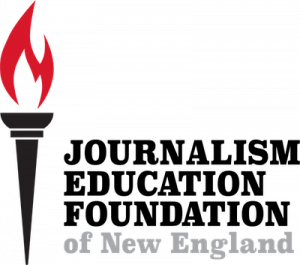
Michael Land, Ph.D.
Assumption College, Worcester, Massachusetts
Dr. Land is an Associate Professor of English who teaches in the Writing and Mass Communications Concentration at Assumption College in Worcester, Massachusetts; an educator who demonstrates exceptional devotion to his students; a writer who persists in his craft while inspiring others to take it up; and a beloved and respected colleague.
Dr. Land graduated from the University of Alabama with a major in Journalism, and later a Master’s in Creative Writing in Fiction at the University of Missouri-Columbia. He worked at The Alabama Journal and Montgomery Advertiser first as a columnist, and later as a reviewer and feature writer, sports columnist, and interim features editor. He has earned several awards from the Alabama Press Association for features, columns, sports and investigative pieces.
He continues to publish in many publications including the Chronicle of Higher Education, the Worcester Telegram and Gazette, Worcester Magazine, and Le Provocateur. Dr. Land had considerable teaching experience before arriving at Assumption College – winning the Graduate Teaching Award in 1997 at the University of Missouri-Columbia slightly more than two years before earning his Ph.D. He has regularly served as the faculty advisor to the student newspaper Le Provocateur; founded a student journal, “Thoreau’s Rooster,” that flourished for many years and contributed to the Assumption Magazine.
He is the Director of the Community Service Learning Program at the College, and has served in this capacity since 2010. Many of his courses involve a service component. Students can reflect in writing on what they have witnessed, participated in, and learned in their community service placements, advocating for and sometimes concretely advancing the social goals they seek to realize. For example, students often participate in Habitat for Humanity under Mike’s tutelage – an organization that Mike has been committed to for more than 30 years. Service is in many ways the unifying theme of his life.
Consistent with his life philosophy, Dr. Land has been a faithful volunteer at ACE, African Community Education, in Worcester, since 2014. For many years he has been passionately committed to racial justice and this commitment continues in his current work with African immigrants.
His students say that he has improved their writing, supported their career decisions, and taught them well. But he has done more than that: he has modeled for them the importance of education, advocacy, and service, and he has done so knowing full well the power of words. Dr. Land always couples the talk with the walk.
Land dedicates this award to his role model in both journalism and service, award-winning journalist, publisher, and community leader Charlie Land – who also happens to be his father.
Kristen D. Nevious, Ph.D., Director
Franklin Pierce University, Rindge, New Hampshire
Dr. Kristen Nevious is an exceptional and gifted educator who challenges her students to achieve their very best. In her courses, she demands outstanding work from her students in order to prepare them for careers and leadership roles in the nation’s journalism organizations of the future.
Outside of the classroom, Dr. Nevious serves as the mentor and advisor to several student groups which constitute the university’s Pierce Media Group (PMG): The Pierce Arrow, the campus print newspaper; WFPC-LP 105.3 FM The Talon, the student radio station; the campus television station FPTV-25; the Ravens Sports Network; the PoliticsFitzU YouTube Channel, PMG social media, and the Four Corners Marketing Group. Under her leadership, each of these student organizations has experienced a marked increase in both quality and quantity of events coverage in recent years, and both the campus television station FPTV-25 and the Ravens Sports Network are poised to expand into additional units.
She has created several innovative learning opportunities for students in the area of political journalism, leading students in the coverage of presidential campaigns, primary debates, Republican and Democratic National Conventions, Presidential Inaugurations and a media partnership with the Boston Herald.
In 2015, she became the director of the Franklin Pierce University Polling. Several state and national polls were conducted through these auspices.
As part of her Fitzwater Center Director of duties, she organizes a speaker series entitled Tuesday Briefings that includes many nationally renowned speakers.
During the summer months, Dr. Nevious hosts and leads the Presidency and the Press program for young journalists. This innovative program brings aspiring high school journalists from across the country to the Rindge campus where they learn reporting, photography, and video skills. Dr. Nevious arranges for them to meet and interact with national, state and local media, and political leaders. Some of these have included: candidate Rick Santorum, C-Span’s Steve Scully, WMUR’s Trent Spiner, White House photographer David Valdez, NH senator Lou D’Allesandro, and former White House Press Secretary Marlin Fitzwater. She received a grant in 2016 from the NH Charitable Foundation to develop a year-long experience in journalism for high school students and their journalism teachers in New Hampshire.
Dr. Nevious exemplifies how a teacher and mentor with an unceasing passion for journalism can touch the lives of students as they prepare for and embark on a career in a challenging but rewarding field. She has an extraordinary record as journalism educator and has made many contributions to the discipline providing immersive learning experiences for student journalists.
 Barbara (BJ) Roche
Barbara (BJ) Roche
University of Massachusetts, Amherst MA
Professor Barbara (BJ) Roche, has been a journalism instructor at the University of Massachusetts Amherst for 22 years. She has worked for the Boston Globe, the Cape Cod Times and other New England publications, is still an active freelancer and regularly teaches Newswriting and Reporting, Magazine Writing, Introduction to Multimedia Reporting and Entrepreneurial Journalism. She also is the journalism department’s internship supervisor.
Roche teaches not only core courses, but also innovative courses of her own design including Journalism Launchpad and Entrepreneurial Journalism. She also helps to assimilate new instructors. She has been instrumental in helping instructors incorporate multimedia assignments into their courses, even holding workshops for instructors to help them learn how to teach multimedia skills like podcasting and shooting video that are required of students in the rapidly changing media environment.
Her colleagues and students note that Roche is a professor that engages students as they enter the journalism program and as they complete it. She is committed to helping them in whatever way she can. A number of students said they owed their professional success to her.
The NENPA judging panel was impressed by the nomination letters for Roche that outlined her efforts to educate both students and fellow colleagues, her academic advising, her work as an internship coordinator and her commitment to teaching by example using her considerable journalism skills through her use of technology, including blogging and social media, and through her own entrepreneurial journalism work.
In 2013, Roche won the College of Social and Behavioral Sciences Outstanding Teacher Award. She has been nominated several times for the University’s Distinguished Teaching Award and the Outstanding Advisor Award. She was also one of a handful of educators nationally chosen to attend a January 2013 entrepreneurial journalism teaching workshop at Arizona State University to share her Entrepreneurial teaching innovations and to learn those of others.
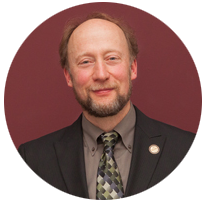 Marty Dobrow
Marty Dobrow
Springfield College, Springfield MA
Marty Dobrow joined the faculty of Springfield College in 1999 and, apart from his exceptional knowledge of the field and excellence as an actively publishing journalist, he is known across campus as an outstanding teacher.
He has served since 2002 as the faculty advisor to the school’s weekly student newspaper. In this role Marty has guided students through some particularly challenging stories that were vitally important to the campus community, and the newspaper’s website won a national award at the annual Associated Collegiate Press Conference.
As part of his teaching responsibilities, Marty serves as the internship coordinator for the Springfield College Communications/Sports Journalism Major, a position that requires intensive outreach and strong, current relationships with a variety of journalism organizations (both regionally and nationally.) He coordinates and supervises as many as 35 student placements in journalism internships annually.
Marty Dobrow’s role as an outstanding journalism educator at Springfield College is anchored in his own identity as an actively writing and publishing journalist. He worked as a staff writer at the Daily Hampshire Gazette, was a frequent correspondent for The Boston Globe, has been regularly published on the ESPNBoston.com website and is the author of two well received books. Marty’s gifts as a writer have been recognized with a number of national and regional awards, including two first-place awards for magazine-length features from the United States Basketball Writers Association.
His educational dedication extends beyond the classroom and his mentorship of the student newspaper to the programming of campus events. He has arranged for campus visits by many prominent journalists. These visits to campus by successful journalists are wonderful opportunities for the students to interact with professionals in the field today. The extra effort Marty dedicates to this type of programming is a testament to his excellence as an educator.
Marty was selected as the 2014-15 Distinguished Professor of Humanics, an award given annually to only one Springfield College Professor. This award honors teaching excellence along with clear commitment to the school’s mission. There is no higher teaching honor at the College than this particular award, and his selection was enthusiastically received by the full faculty.
Perhaps one of the clearest measures of Marty Dobrow’s excellence as a journalism educator is the success of his students, as many are now writing professionally for newspapers around the country. One of his students was honored as Vermont’s Sportswriter of the Year and the lone female awardee among more than 100 NSSA winners in 2013 and, in accepting, she paid tribute to her former teacher and the role he played in her own decision to pursue a journalism career.
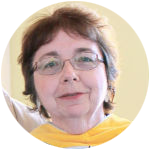 Maureen E. Cotreau
Maureen E. Cotreau
University of Connecticut, Storrs CT
In nominating last year’s New England Journalism Educator of the Year, Stephen Burgard of Northeastern University said that there are three pillars of academic journalism: Being a great teacher, being a great researcher and writer, and providing valuable service to the university.
This year’s winner, professor Maureen Croteau, chair of the journalism department at the University of Connecticut, has excelled at all three.
Being a great teacher
She has taught almost every reporting and writing class UConn offers — from news writing to feature and magazine writing, copy editing, ethics and courses in production. She teaches the freshman journalism experience course as well as a final thesis course for honor students. Rarely is she in a position of asking faculty to do something she has not already done or could not do. She leads by example, setting high professional standards for everyone, while also directing the department, shaping its curriculum, managing its staff and providing opportunities for students at newspapers throughout New England.
Being a great Researcher and Writer
She has worked for three New England newspapers — the Hartford Times, the Hartford Courant and the Providence Journal-Bulletin — as a reporter, copy editor, features writer, magazine editor and section editor. She is the author, along with Wayne Worcester, of The Essential Researcher, a sourcebook for journalists, writers and students.
Providing Valuable Service to the University
She holds the distinction of being the first woman to head an academic department at UConn. Having led the Journalism Department for 30 years and still counting, she is the longest serving department head on campus. She’s an original thinker and genuine innovator, and her work has transformed the teaching of journalism at the university. She set up the first computerized teaching lab on the campus in 1985, and since then she has taken the department headfirst into the digital revolution, encouraging students to embrace both technology and journalism. Today, her program turns out graduates prepared to work in technologically advanced newsrooms of every stripe in the modern journalism landscape. She is committed to the idea that journalism majors need a strong liberal arts background to understand the world and report on it. Therefore, UConn journalism students are urged to complete an additional major or coursework that will provide context for their future writing and editing. UConn’s journalism department is nationally accredited.
For three decades, she has guided the department steadily forward through periods of financial challenges and technological transition, while remaining true to its core mission of teaching sound journalism. She has advocated for resources, cultivated opportunities for students through internships and job placement, while setting the highest standards for teaching and professional education.
She has also remained active in professional circles, serving on boards and committees of numerous organizations, including the Connecticut Foundation for Open Government, and the Board of Directors of the Day Publishing Co. of New London. She is also a Trustee of The Day Trust.
In college basketball circles, UConn’s Gample Pavilion has been called “Jim Calhoun’s House” or “Geno Auriemma’s House.” In that vein, the highly respected UConn Journalism Department is, indeed, “Maureen Croteau’s House.”
 Nicholas Daniloff
Nicholas Daniloff
Northeastern University, Boston MA
Professor Nicholas Daniloff joined Northeastern University in 1989 and he directed the journalism program from 1992- 1999. He currently teaches ethics, and graduate and undergraduate print journalism courses.
A 30-year veteran in national media, Professor Daniloff served as a foreign correspondent for UPI and U.S. News & World Report in London, Paris, Moscow and Washington D.C. His experience gives him extraordinary expertise and source material for his teaching. These experiences included dilemmas over obtaining and publishing photographs of a grave site for Chernobyl, an awkward and difficult decision to be made when presented suddenly with highly sensitive documents, and his ordeal as the center of international attention in Moscow after the apprehension of a Soviet spy in the United States.
He has written several books, and numerous popular and academic articles. The books include, The Kremlin & the Cosmos (1972), Two Lives, One Russia (1988), and the recent Of Spies and Spokesmen: My Life as a Cold War Correspondent (2008).
In Of Spies and Spokesmen, Professor Daniloff used a sharp recollection of detail and an accessible writing style to shed light on an era known mostly for its intrigue, high drama and tension. In so doing, he contributed to the world’s knowledge of an era that, by its secretive nature, often escaped our understanding as it unfolded. He at times had ring side seats on opposite ends of the global stage and brings the reader in with him to share in a recollection of a period long shrouded in mystery.
Professor Daniloff was instrumental in the development of the Northeastern School of Journalism’s longstanding relationship with NENPA and its predecessor NEPA, and he formerly served as an ex-officio member of its Board of Directors.
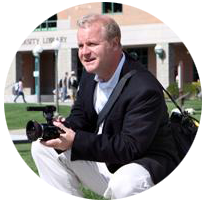 Michael Scully
Michael Scully
Roger Williams University, Bristol RI
For the past five years Michel Scully has been instrumental in shaping the journalism curriculum at Roger Williams University. He brings his considerable experience in print and broadcast journalism to the program, as well as his enthusiasm for finding ways to incorporate multimedia into the reporting landscape.
Scully, along with colleague Paola Prado, created the journalism major at RWU that was officially launched in 2012. They completely reengineered the curriculum to shape the program into a “digital journalism” major that will prepare students to work in the newsroom of the future.
When teaching courses Scully emphasizes the importance of traditional news gathering practices regardless of which format is ultimately used to deliver the story. When they finish the program, RWU journalism students know the “catechism” of news gathering, and they know how to professionally pitch, report, write and edit news stories for print and digital environments, including video.
Scully’s progressive outlook, enthusiasm and commitment serve as a model for journalism educators everywhere.
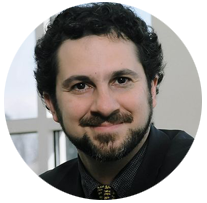 Dr. David T.Z. Mindich
Dr. David T.Z. Mindich
St. Michael’s College, Colchester VT
Mindich joined the St. Michael’s College Journalism Department in September 1996. He has won numerous honors for his teaching, including the 2002 Krieghbaum Under 40 Award from the Association of Educators in Journalism and Mass Communication for Outstanding Teaching, Scholarship and Service, as well as the CASE/Carnegie Foundation’s Vermont Professor of the Year in 2006.
Dr. Mindich has written two books: Just the Facts: How Objectivity Came to Define American Journalism (1998, NYU Press) and Turned Out: Why Americans Under 40 Don’t Follow the News (2004, Oxford), a book Walter Cronkite called “very important…a handbook for the desperately needed attempt to inspire in the young generation a curiosity that generates the news habit.” Mindich is currently writing a comprehensive modern Mass Communications textbook for Oxford.
He has been a strong advocate at the college for the First Amendment, especially on behalf of its award-winning student newspaper. He also helped St. Michael’s College become the fist small college in the nation selected to host a Kappa Tau Alpha Journalism Honor Society.

